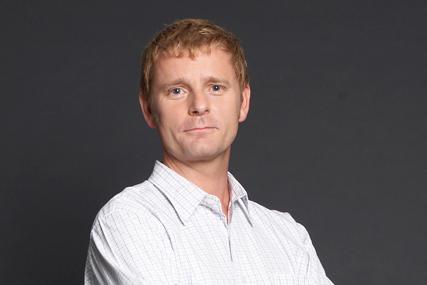When Zachary Taylor, 12th president of the US, was campaigning for election, he established a practice that became so widely adopted among politicians that it became a byword for seeking association with another's success.
His friend, showman and circus impresario Dan Rice, would drum up business by holding street parades, with the band carried on a cart through the cheering crowds. Rice invited Taylor to ride on the band wagon to boost his campaign, and the phrase was coined.
Yet it wasn't until the digital world emerged that bandwagon-jumping became a truly professional sport. Ongoing and rapid change destabilised businesses, undermining traditional models and driving people to ever-more desperate attempts to be part of the next big thing. Nowhere was this more prevalent than in the app world.
Facebook and the iPhone were pioneers, effectively crowdsourcing the intellectual resource that created functionality their competitors' proprietary models simply couldn't match.
A claimed 500,000 apps have been produced for Facebook, and 140,000 for iPhone. Their success created a goldrush for marketers to whom a bandwagon (apps) on top of a bandwagon (social media) proved irresistible.
However, the app market is hypercompetitive and oversupplied; and, like advertising, seems to attract those who prefer to leap straight to the execution, missing out all those tiresome planning steps, like working out who it might be for and what the benefit might be.
Briefs were duly rushed out to enthusiastic production companies, and the consequence is, predictably, an awful lot of crap.
On Facebook, Qantas' My Travel Insiders app lets you pick your friends' brains about destinations; sadly, there are only 73 monthly users worldwide, so your chances of having a friend who also has this app installed are minimal.
Similarly, Hotels.com appears to have an app that lets you find friends near hotels - I say appears, because it was developed by the same person who seems to have created a fake profile for the company. Still, the fake profile is more than twice as popular as the official one, and the app has a grand total of two monthly users.
It's easy to criticise seemingly pointless apps like Carling's iPint and Coke's Cheers (which lets you clink 'glasses' with people); but, ironically, these can make sense. They may not stay on the iPhone for long; the average half-life of an app (the time before half of users stop using it) is nine days, but those that are sufficiently popular can be a cost-effective means of engaging your audience in a brand-consistent way.
The world of apps is acutely Darwinian, and anyone considering an app would do well to consider these four questions.
First: competition. Want to launch an iPhone app with a Paris city guide? There are already more than 100; yours had better be special to cut through.
Second, seeding. How are you going to get it off the ground? Do you have Facebook, web or mobile assets you can use to promote it? If not, you might have to advertise, and that costs money.
Third, momentum. Is there any reason or means for people to encourage friends to download it? Without a viral aspect, you are going to have to do all the work yourself.
Finally, benefit. We know why you'd like to publish an app, but why would anyone want to download or use it?
Of course, there's more to it; but if people answered these questions before leaping on the bandwagon, they would save a lot of money. Of course, then we would miss out on such gems as 'Trust - the Danone way of doing business'.
Andrew Walmsley is co-founder of i-level
30 SECONDS ON ... iPhone apps
- The top-grossing iPhone apps chart on the UK iTunes App Store last Friday was headed by two GPS apps, number one being TomTom Western Europe and two its UK & Ireland product - but they cost more than £50 apiece. Other travel apps in this chart include the AA Route Planner (£1.79) and the National Rail Enquiries app (£4.99).
- The paid apps chart was led by the latest release of MSN Mobile Messenger (59p). While this chart is dominated by games such as Doodle Jump and Flick Kick Rugby (both 59p), there are also apps with video camera, radio and alarm-clock functions.
- The free apps chart included a few branded apps; those that did appear were mostly recent releases. Tesco's new Clubcard app, which allows users to put their Clubcard barcode on their iPhone, was at number four; the popular Orange Wednesdays app was at number 12. This enables Orange iPhone users to view trailers and search cinema and film listings in the same place as they receive their two-for-one ticket vouchers.


